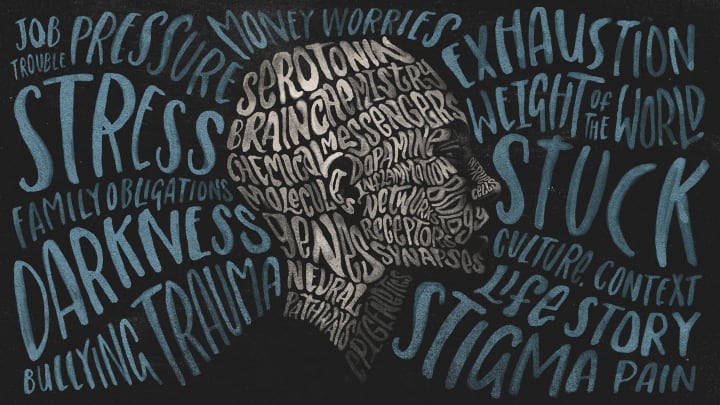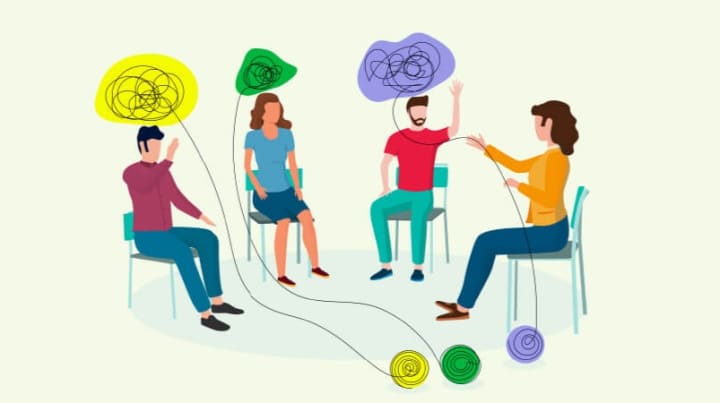Overcoming Depression due to Relationship Issues
Steps you can take to come out from depression
Depression is a debilitating condition that can have serious consequences on one’s mental health, relationships, and overall quality of life. When it’s due to relationship issues, the emotional toll can be especially devastating. It can be hard to find your way back to happiness and normalcy, but it’s not impossible.

Here are some steps you can take to come out from depression due to relationships:
1. Recognize the Symptoms of Depression
The first step to recovery is recognizing that you may be suffering from depression. Some common symptoms of depression include:
- Loss of interest in activities you used to enjoy.
- Fatigue or lack of energy.
- Difficulty sleeping or sleeping too much.
- Feelings of hopelessness or worthlessness.
- Loss of appetite or overeating.
- Difficulty concentrating or making decisions.
- Feelings of guilt or shame.
- Suicidal thoughts or behaviors.
- Eating a balanced diet
- Exercising regularly
- Getting enough sleep
- Practicing relaxation techniques, such as meditation or deep breathing
- Avoiding drugs and alcohol
- Setting boundaries and saying no to things that drain your energy
If you’re experiencing these symptoms, it’s important to seek help from a mental health professional. Depression is a treatable condition, and there are effective therapies and medications that can help you manage your symptoms.
2. Allow Yourself to Grieve
Relationships are a big part of our lives, and when they end, it’s natural to feel a sense of loss and grief. It’s important to allow yourself to feel these emotions and process them in a healthy way. This might involve talking to a trusted friend or family member, journaling, or seeking therapy.
3. Focus on Self-Care
When you’re struggling with depression, it’s important to prioritize self-care. This means taking care of your physical, emotional, and mental health. Some ways to practice self-care include:
4. Seek Professional Help
While self-care can be helpful in managing symptoms of depression, it’s important to seek professional help if your symptoms are severe or interfering with your daily life. A mental health professional can provide a safe space to talk about your feelings and develop a treatment plan that works for you.
There are several types of therapy that can be helpful for depression, including:

- Cognitive Behavioral Therapy (CBT): This type of therapy helps you identify and change negative thought patterns and behaviors that contribute to depression.
- Interpersonal Therapy (IPT): This type of therapy focuses on improving communication and problem-solving skills to strengthen relationships.
- Psychodynamic Therapy: This type of therapy helps you explore unconscious patterns of behavior and emotions to gain insight into your current struggles.
In addition to therapy, medication may be helpful for some people with depression. Your mental health provider can help you decide if medication is right for you.
5. Practice Gratitude
Practicing gratitude can help shift your focus from negative thoughts and emotions to positive ones. This can be especially helpful when you’re feeling depressed due to relationship issues.
Some ways to practice gratitude include:
- Writing down three things you’re grateful for each day
- Reflecting on positive experiences from your past
- Expressing gratitude to others through thank-you notes or kind gestures
- Taking time to appreciate nature or other simple pleasures in life
6. Build a Support System
Having a strong support system can be a powerful tool in managing depression. This might include friends, family members, or support groups. It’s important to surround yourself with people who are supportive and understanding, and who can offer encouragement and validation when you’re feeling down.
7. Focus on Your Future
When you’re struggling with depression, it can be hard to see a future beyond your current pain. However, it’s important to remember that your life is not defined by your current circumstances and that you have the power to create a fulfilling future for yourself. One way to do this is by setting goals and working towards them, whether they’re related to your career, hobbies, or personal growth.
8. Take Action
While it’s important to allow yourself to feel your emotions and process them, it’s also important to take action to move forward. This might involve reaching out to a therapist, initiating a difficult conversation with a loved one, or making changes to your lifestyle to support your mental health. Taking action can help you regain a sense of control and empower you to make positive changes in your life.
9. Practice Forgiveness
Forgiving yourself and others can be a powerful tool in healing from depression due to relationship issues. Holding onto anger, resentment, or blame can keep you stuck in a negative cycle of emotions. Practicing forgiveness can help you let go of these negative emotions and move forward with greater peace and understanding.
10. Celebrate Your Progress
Recovering from depression is a journey, and it’s important to celebrate your progress along the way. Whether it’s a small step forward or a major milestone, take time to acknowledge your achievements and give yourself credit for the hard work you’ve put in. This can help boost your self-esteem and motivate you to continue making progress towards your goals.
About the Creator
AKANSHA PANDEY
As a content writer, my job is to create written content that is designed to engage, educate, inform, & entertain my audience. In today's digital world, content is king & the demand for high-quality, relevant content has never been greater.






Comments
There are no comments for this story
Be the first to respond and start the conversation.